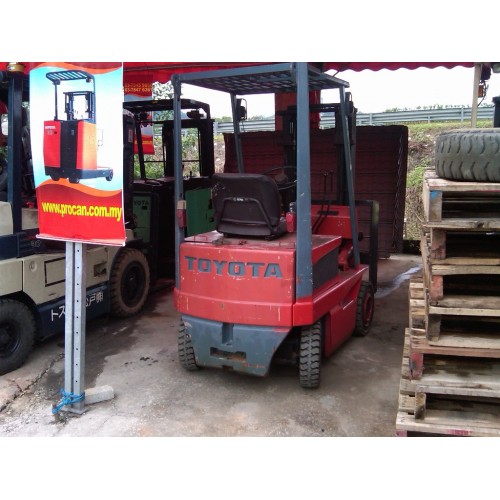Navigating the Value: Unveiling the Advantages of Secondhand Forklifts
In the dynamic landscape of material handling, businesses are increasingly turning to secondhand forklifts to meet their operational needs. These pre-owned workhorses offer a host of benefits, challenging the conventional perception that new is always better. Let’s explore why opting for a secondhand forklift might be a strategic move for your business.
1. Cost-Effective Solution: One of the most compelling advantages of investing in a secondhand forklift is the significant cost savings. Purchasing a pre-owned forklift allows businesses to acquire a reliable and functional machine at a fraction of the cost of a new one. This cost-effectiveness is particularly beneficial for small and medium-sized enterprises looking to optimize their budgets.
2. Immediate Availability: Unlike new forklifts that may have lead times associated with manufacturing and delivery, secondhand forklifts are readily available. Businesses can swiftly integrate these machines into their operations, minimizing downtime and ensuring uninterrupted workflow.
3. Proven Performance: Many secondhand forklifts have a proven track record of performance in their previous assignments. With proper maintenance and care, these machines can continue to deliver reliable service for years. This reliability is a testament to their durability and suitability for various material handling tasks.
4. Reduced Depreciation Concerns: New equipment often experiences a significant depreciation in its initial years. Secondhand forklifts, having already undergone this phase, offer a more stable resale value. This can be advantageous for businesses considering potential future upgrades or changes in their fleet.
5. Budget-Friendly Maintenance: While all machines require maintenance, the costs associated with maintaining a secondhand forklift are often more budget-friendly. Parts are readily available, and there’s a wealth of knowledge regarding the maintenance requirements of specific models, making it easier for businesses to manage upkeep costs effectively.
6. Tailored to Specific Needs: With a thriving secondhand market, businesses can find a forklift model that precisely meets their unique requirements. Whether it’s a specific lifting capacity, mast height, or attachment compatibility, the variety in the secondhand market allows for tailored solutions without the hefty price tag of customization.
7. Sustainability: Choosing a secondhand forklift aligns with sustainability goals by extending the lifespan of machinery. This environmentally conscious choice reduces the demand for new manufacturing, contributing to a more circular economy.
8. Flexibility in Brands and Models: The secondhand market offers a diverse range of forklift brands, models, and types. Businesses can explore different options to find the perfect match for their specific material handling needs, allowing for flexibility and adaptability in their operations.
Conclusion: The decision to invest in a secondhand forklift is a strategic move that combines cost-effectiveness with proven performance. As businesses prioritize efficiency, budget optimization, and sustainability, the secondhand forklift market emerges as a valuable resource. With careful consideration and proper evaluation, businesses can unlock the value and reliability offered by these pre-owned workhorses, contributing to the success and efficiency of their material handling operations.

